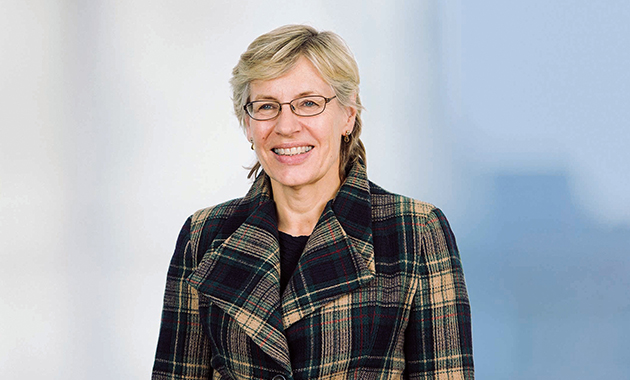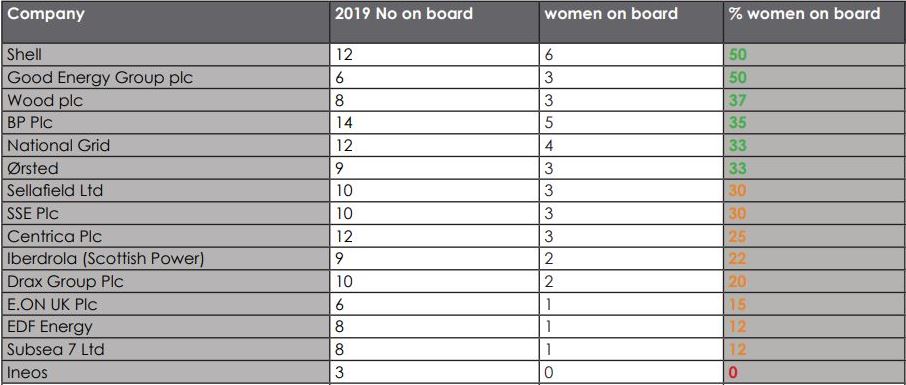
The energy sector has “gone backwards” on gender balance since last year, according to a new report on the country’s top 80 companies.
Figures have been released from the POWERful Women action group and the Energy Leaders’ Coalition, made up of bosses from top employers including Shell, SSE and Scottish Power.
It states the number of energy firms meeting a target set in 2015 by Lord Mervyn Davies for 33% of boards to be female by 2020 has gone down from nine to eight.
The number of firms meeting the action group’s 30% target for the number of executive directors has also dropped.
Ruth Cairnie, chair of POWERful Women, said the annual stats shows “disappointingly slow progress”, which has “even gone backwards” in some cases.
The report, which is the coalition’s first since being established last year, shows women occupy 16% of board seats, an increase of just 3% from 2018.
There was no improvement on the number of women on executive board seats and 42% have no women on their boards at all, representing a small increase on 50% last year.
Ms Cairnie said: “It is clear that we still have a very long way to go to truly tap into the pool of female talent available in the energy sector so that it is fit to meet the challenges and opportunities of the energy transformation.
“The 2019 statistics show that progress is disappointingly slow, and has even gone backwards when we look at progress towards targets.”
Of the 15 largest-employing companies in the country, Shell and Good Energy Group performed best with their boards being 50% made up of women, followed by Wood (37%) and BP (35%).
EDF and Subsea 7 were on the lower end of that scale at 12%, while Ineos was at the foot of the table with no women on its board.
Of the 80 surveyed, 32 companies did not have any women on their boards, including Eland Oil and Gas, Serica Energy and Neptune Energy , which all have bases in north-east Scotland.
Other North Sea operators also came on the lower-end including Chrysaor with 11% on its board, as well as Hurricane Energy and EnQuest with 12% each.
Keith Anderson, chief executive of ScottishPower, said: “The first year’s work of the Energy Leaders’ Coalition has been important in identifying the barriers to gender balance at senior level.
“We all know that a diverse workforce is the best way to drive success not just in our own business, but also for the sector as a whole.
“The energy industry is changing. If we are to overcome the challenges of becoming a net zero country by 2045 and make the most of the opportunities – of decarbonisation, digitalisation and changing customer expectations – we also need to make the most of the talent available. That means addressing the under-representation of women at senior levels.”

